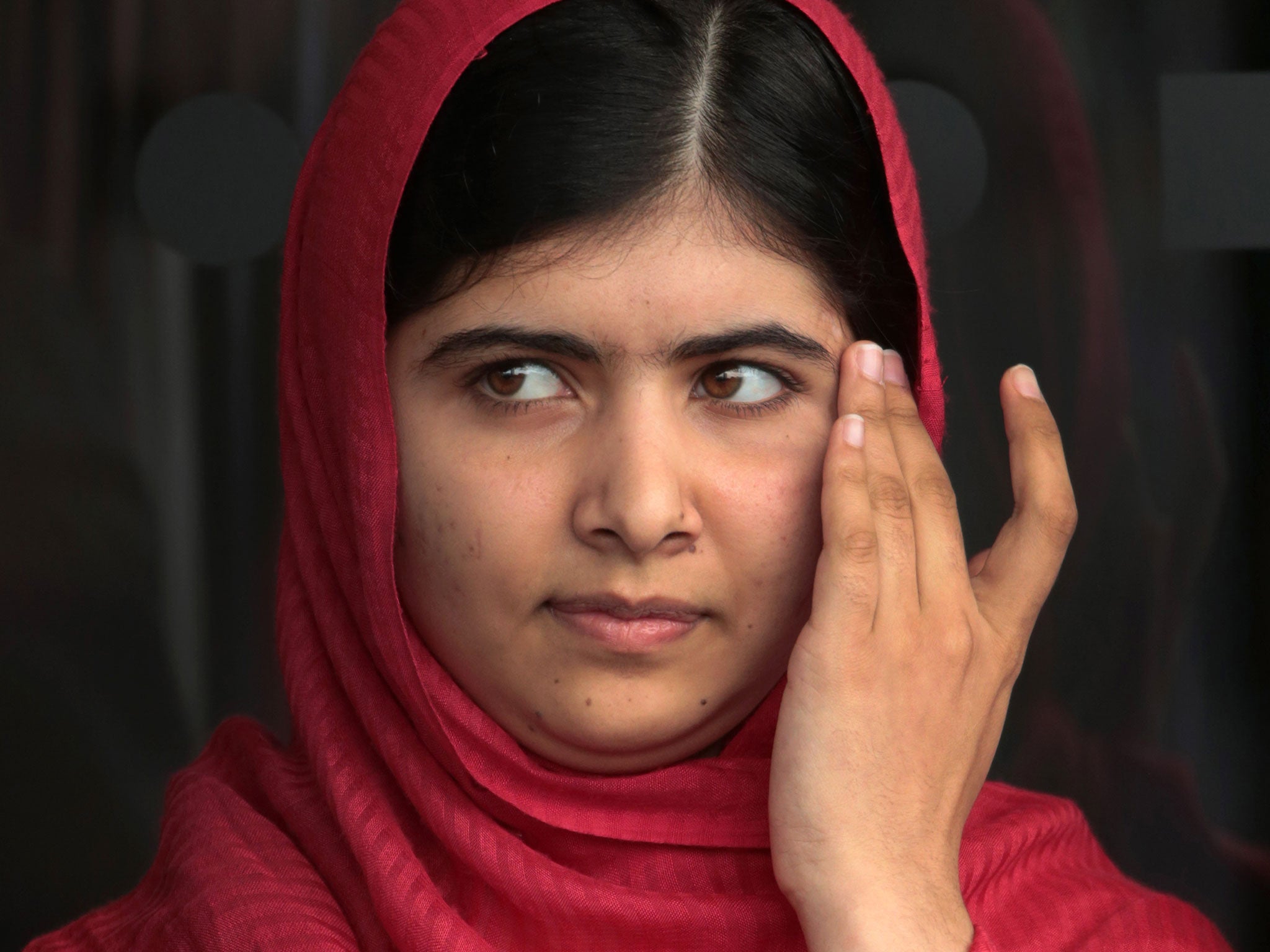Malala Yousafzai warns British schoolgirls not to take their education for granted as Taliban renews threat to kill her
Teenage human rights campaigner tells UK students 'it is very precious - go to school' as Taliban say they will try to kill her again

The Pakistani schoolgirl who was shot in the head by the Taliban, believes that British girls take their education for granted.
Malala Yousafzai, now 16-years-old, angered the Taliban with her outspoken and courageous pleas for girls to be educated. She was shot by a gunman who boarded her school bus in the valley of Swat in northwest Pakistan a year ago.
The bullet went into her left eye socket but just missed her brain.
She told BBC Panorama's Malala: Shot For Going To School programme, "Yes, I believe that, and I want to tell the students of UK to think that it is very precious, it's very prestigious, go to school.
"Reading a book, having a pen in our hands, studying, sitting in a classroom is something very special for us because once we were deprived from it and because what we have seen in Swat."
Her comments come as Sky News reports that the Taliban have vowed to try and kill they schoolgirl again.
A Pakistani Taliban spokesman Shahidullah Shahid said the fundamentalist Islamic political group stands by its decision to target her for criticising Islam.
"If we get another chance we will definitely kill her and that will make us feel proud. Islam prohibits killing women, but except those that support the infidels in their war against our religion," he added.
Life was tough for the bright and determined youngster born into a society that did not value girls.
"When I was born, some of our relatives came to our house and told my mother, don't worry, next time you will have a son," she told the programme makers.
"For my brothers it was easy to think about the future - they can be anything they want. But for me it was hard and for that reason, I wanted to become educated and I wanted to empower myself with knowledge..."
In January 2008 the Taliban, the that controlled the region, declared that girls would no longer be allowed to go to school. Acid attacks, abuse and even killing were used as punishment. Malala admits "I was afraid of my future".
With her father Ziauddin's backing, Malala kept an online diary and did interviews with journalists to encourage girls to seek education - but it also made her a target.
She does not remember being shot on 9 October 2012 - but her horrified friends recall that the Taliban asked for Malala by name before shooting straight at her head. Everything, from schoolbooks to clothes, were soaked in blood and Malala was near death.
She travelled to the UK for treatment but her injuries were so bad that her father Ziauddin asked relatives to start making plans for her funeral.
Malala slowly recovered after being transferred to an army cardiology hospital with better intensive care.
She now lives in Birmingham with her family and started at Edgbaston High School for Girls in March 2013. She is determined to keep in touch with her Pashtun culture, believing that it teaches patience, peace and religious tolerance.
Her courage has made her a much-admired global icon, giving her the chance to make a speech to the UN on her 16th birthday.
She has been invited to a reception for Youth, Education and the Commonwealth, being hosted by the Queen and the Duke of Edinburgh, at Buckingham Palace on October 18. It is thought the Queen was impressed by her bravery.
It has also made her a hot tip for the Nobel Peace Prize, the winner of which will be revealed on Friday.
Malala told Panorama, "If I win Nobel Peace Prize, it would be a great opportunity for me, but if I don't get it, it's not important because my goal is not to get Nobel Peace Prize, my goal is to get peace and my goal is to see education of every child."
Speaking on the BBC Radio 4 Today programme, Malala described her experience of settling in to her new life in Birmingham.
"I was feeling a little bit embarrassed and worried... the school was quite different compared to school in Pakistan," she said.
She said she was particularly surprised at the level of freedom afforded to women.
"It was difficult to adjust to this new culture and this new society, especially for my mother, because we have never seen that women would be that much free, that they would go to any market, they will be going alone with no men and with no brothers and fathers, because, in our country, if you want to go outside, you must go with a man - if even your five-year-old brother goes with you it's fine, but you must have someone else, a girl cannot go outside all alone."
Malala said she still very much saw herself as a Pashtun girl, despite her new life.
Ashed if she was becoming Western, she replied, "No, I'm not becoming Western. I'm still following my own culture - Pashtun culture."
Additional reporting by PA
Subscribe to Independent Premium to bookmark this article
Want to bookmark your favourite articles and stories to read or reference later? Start your Independent Premium subscription today.

Join our commenting forum
Join thought-provoking conversations, follow other Independent readers and see their replies